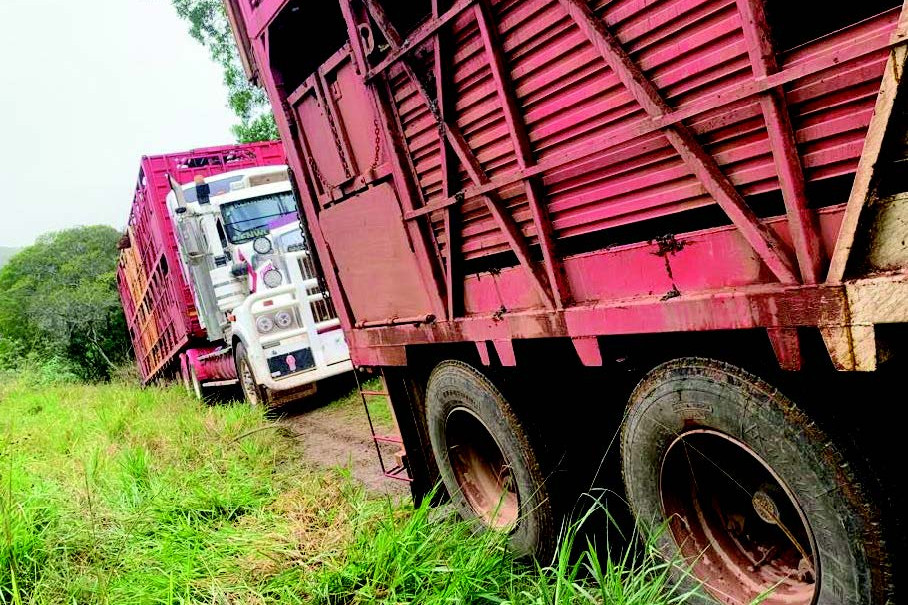On The Land
27 January, 2022
Industry faces new problems after AdBlue
QUICK action by the Australian Federal Government, has averted the potential shut down of the national transport industry, following negotiations with chemical giant, Incitec Pivot.

China halted its export of urea to Australia late last year, leaving the country's transport industry with just 15,000,000 litres of Diesel Exhaust Fluid (DEF), known as AdBlue.
Around 500,000 diesel trucks, buses and heavy machinery, as well as many passenger cars rely on AdBlue, an anti-pollution additive made from highgrade urea and deionised water.
Mandated for use in most modern diesel engines since 2011, Australia uses an average of 4 million litres of AdBlue each week. Product shortages quickly sent AdBlue prices soaring to triple its base price range of 60 cents to $1.50 per litre signalling disaster for freight services nationally.
The Tableland's location, around 1700km from Brisbane, and its heavy reliance on road transport to freight produce in and out of the district make it especially vulnerable during such an event.
Following government talks with the $6 billion Incitec Pivot Limited – the only Australian company to produce the solution and supplier of around 10 per cent of the Australian market for AdBlue – a temporary fix has been negotiated.
Queensland Trucking Association Brisbane CEO Gary Mahon said feedback from Queensland's trucking fl eets suggested AdBlue supply had now stabilised after a $29.4 million grant to Incitec sent production at its Gibson Island plant into overdrive throughout Christmas and the new year.
“Supply was very thin during the fi rst couple of weeks in January and the industry sailed very close to the wind. Things now appear to be back on track, but I believe prices will stay well above previous levels, hovering around the $1.60 to $1.80 levels for some time,” he said.
“Far more concerning for our industry at the moment are the increasing Covid induced shortages of truck drivers and warehouse staff to process and load freight and get it delivered around the country.
“So many drivers are either ill or isolating as the omicron wave of Covid escalates, that it has created a whole new problem for the industry, and the shortage of Rapid Antigen Testing kits has only made it worse.”
Mr Mahon said the industry was seeming to “roll out of one crisis and into the next”. “Driver shortages have been an issue for a while now, and the impact of Covid has hastened the exit of exhausted staff from the industry and increased the number just wanting a break from the oppressive new systems in place,” he said.
“We have some ideas for attracting and retraining drivers, but we have been looking for government support to implement those ideas and that support has not been forthcoming.”
Spokesman for local cattle and general freight transport company, Mt Garnet-based Smith Brothers Transport, Brian Smith said the AdBlue shortage wasn't too much of a problem for their company at the moment.
After 20 years in the business, the family anticipated there could have been a developing supply problem.
“We bought in extra stocks of AdBlue from Brown and Hurley Townsville, at the end of last year, giving us around 1500 litres to work with,” Mr Smith said.
“Six out of our seven prime movers are ‘Euro 5’ models which run a diesel/AdBlue mix, set at a ratio of about 4-5 per cent of fuel burn, or about 40ml per kilometre on an average monthly fuel consumption of about 80,000 litres.
“We've got about three months’ supply up our sleeves and with the wet season in progress and the meatworks and saleyard having their annual break, we aren't usually that busy at this time of the year.”
With the AdBlue situation sorted for the time being, the cost of fuel and steel had become their biggest concern.
“From February to December 2021, the price of fuel rose by about 40 cents per litre which costs us an extra $24,000 a month. We just couldn't keep going at those rates,” he said.
“After discussions at the end of last year, we have introduced a fuel levy which works on a 1 per cent increase in the freight rate for every 4c/litre fuel increase. Even with a 12 per cent increase to customers, we are still absorbing some of the pain.”
New trailer prices had increased by 40 per cent, making a $180,000 trailer worth $252,000 and a former maintenance rebuild on a set of trailer floors that would have cost $40,000- $50,000, would now cost up to $80,000.
“Even companies like Haulmark Trailers are struggling to find staff . Their monthly build rate has dropped from six trailers down to three per month, and that is only achievable through remaining staff working a heap of overtime,” Mr Smith added.



